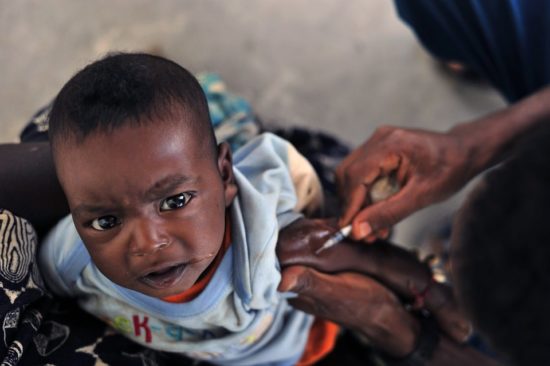Reducing antibiotic use with diarrhoeal vaccines
Diarrhoeal disease is the third leading cause of death among children under five years globally, with 11.7 billion cases occurring annually, resulting in over 500,000 deaths. Antimicrobial resistance (AMR) is a major global health and development threat, exacerbated by the misuse and overuse of antibiotics. A study comparing six individual and three combination vaccines against diarrhoeal pathogens found that a Shigella vaccine could reduce antibiotic use by 6-13%, overall antibiotic use by 1%, and bystander exposure by 1%. A combination vaccine against adenovirus, norovirus, and rotavirus would result in the greatest reduction in antibiotic use. Multi-pathogen combination vaccines may be necessary for low-resource settings to minimize costs and obstacles towards sustainable vaccination programs. However, understanding the complexity of diarrhoeal diseases and their potential synergistic effects on disease progression is crucial. Vaccines or combination vaccines not only prevent AMR through reduced antibiotic use but also reduce the risk of AMR pathogens emerging under selection pressure.
AMR NEWS
Your Biweekly Source for Global AMR Insights!
Stay informed with the essential newsletter that brings together all the latest One Health news on antimicrobial resistance. Delivered straight to your inbox every two weeks, AMR NEWS provides a curated selection of international insights, key publications, and the latest updates in the fight against AMR.
Don’t miss out on staying ahead in the global AMR movement—subscribe now!





